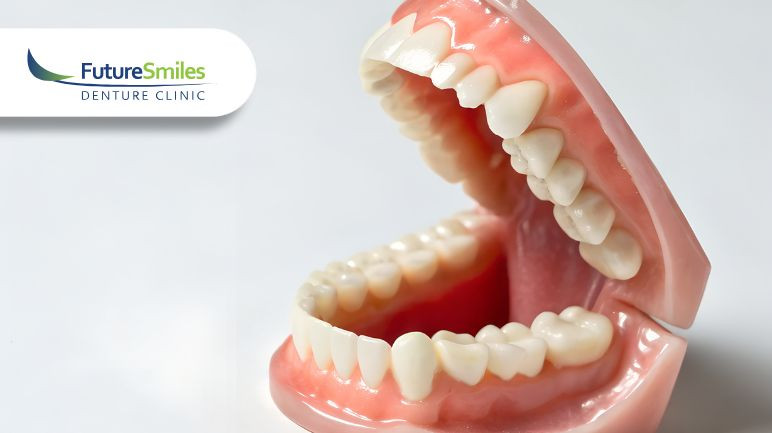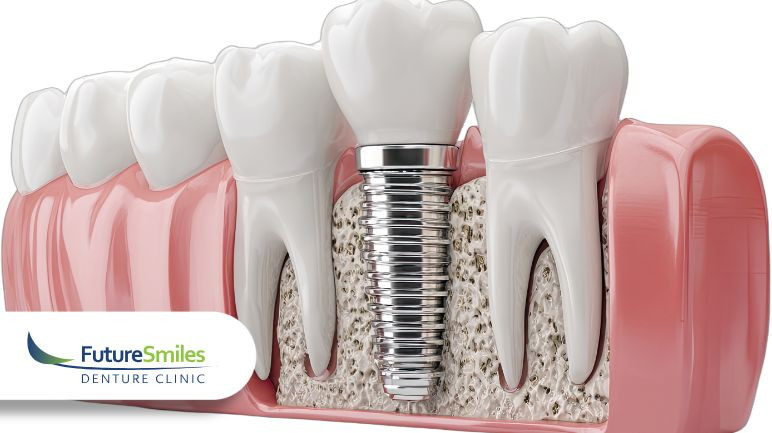Dentures are a fact of life for many Canadian seniors.
In fact, the federal government estimates that 1 in 5 Canadians over age 60 no longer has any natural teeth. For many of these individuals, dentures can improve their quality of life dramatically so they can eat, talk, and smile normally again.
Although dentures offer many benefits, they also require careful maintenance in order to fit correctly and support good oral health.
Seniors often face a variety of common health conditions as they grow older, and not surprisingly, some of these conditions can also affect how their dentures fit and function.
Your health may be affecting your dentures if you have:
1. A regularly dry mouth
If your mouth feels consistently dry, you may notice that your dentures fit less comfortably and chafe on your gums. Dry mouth is a common side effect from many different prescription drugs, so it’s a good idea to let your denturist know about your current list of medications or any changes in your medications.
2. Unmanaged diabetes
When your blood glucose or blood sugar levels are above normal, you’re at a higher risk of developing gum disease and this inflammation can cause your dentures to fit poorly. High blood glucose is a common sign of unmanaged diabetes, so it’s extremely important to follow-up with your family doctor and establish a treatment plan that will bring your blood glucose down to healthy levels.
3. Osteoporosis
Osteoporosis can cause bone tissues to deteriorate throughout the entire body, including your jawbone. As the bones in your jaw weaken, you may notice hardened ridges under the gums that make your dentures fit uncomfortably. Your denturist can offer a number of different solutions to help address this problem, including a soft liner placed under your dentures or modifications to the fit of your dentures.
4. Mouth sores from cancer treatments
Some of the most common treatments for cancer, such as radiation and chemotherapy, can have a drastic impact on your oral health. Cancer patients often experience sores and inflammation in the lining of the mouth, making it uncomfortable to wear their dentures. If you’re about to receive radiation or chemotherapy, check in with your denturist for oral treatment options to prevent or minimize these concerns.
5. Arthritis
The joint pain and stiffness that comes with arthritis can make many everyday tasks difficult, including cleaning your dentures. Let your denturist know if you’re finding daily brushing a problem. Your denturist can recommend some great options such as a specially formulated fluoride rinse and modified toothbrushes.
6. Significant weight loss
Has your body weight recently dropped by more than 15 or 20 pounds? This weight loss can change the overall shape or tone of your mouth, which in turn, impacts the fit of your dentures. Follow-up with your denturist after a significant weight loss to receive denture adjustments that will help your dentures fit correctly again.
7. Noticeable memory loss
According to the Alzheimer Society of Canada, about 40% of people over age 65 experiences some form of memory loss. If you’re noticing any challenges keeping track of cleaning your dentures or booking appointments, your denturist can help. Ask your denture clinic to make appointment reminder calls or provide a denture care plan for a trusted family member to follow on your behalf.
From the way your dentures fit to daily cleaning, the 7 common health conditions noted above can have a significant impact on your dentures. However, the right treatment plan can make all the difference, allowing you to enjoy the maximum benefit of your dentures.
Want to learn more about how your health affects your dentures and what your denturist can do to help? Reach out to Dr. Vlad Dumbrava and the team at Future Smiles for expert advice at 403-475-0016.






